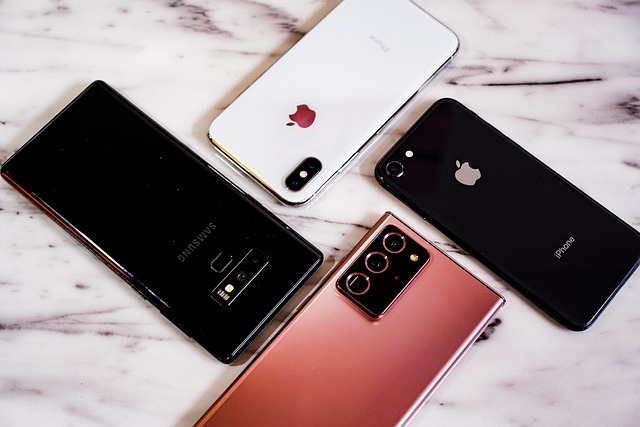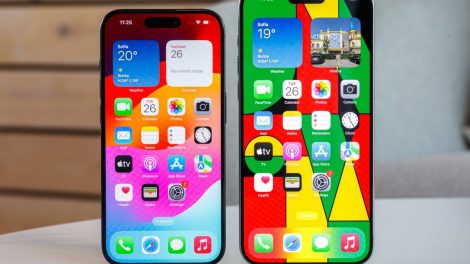Samsung has recently raised serious concerns regarding the security of text messages for both iPhone and Android users, warning that your private communications could be at risk. In a world where digital communication is essential for both personal and business interactions, the implications of such a statement cannot be overstated. With a rising number of cyber threats targeting smartphones and mobile apps, the reliability and security of messaging platforms are more critical than ever before. As Samsung highlights, if you’re not taking the right precautions, your sensitive messages may not be as secure as you believe.

The warning comes as part of a larger conversation about the vulnerabilities that mobile users face when it comes to the safety of their private data. While many people trust their devices to keep their conversations secure, recent reports suggest that weaknesses in the messaging systems used by both Apple and Android phones may leave users exposed to potential breaches. It’s essential for you, as a user of these platforms, to understand the risks involved, as well as what steps you can take to protect your data.
The core of Samsung’s warning revolves around the encryption methods used by mobile operating systems, and how these may not be sufficient to fully protect users from threats. End-to-end encryption, often touted as the gold standard in secure messaging, is not always implemented in the most comprehensive way on iPhone or Android devices. Although Apple’s iMessage and Google’s Messages app offer encrypted messaging to some degree, there are loopholes that hackers can exploit, which may allow them to gain access to your personal conversations. This issue is compounded by the fact that many users are unaware of the exact security measures in place and how they impact the privacy of their communications.
As a consumer, it’s important to understand that despite the encryption offered by these platforms, your messages could still be vulnerable to interception, especially if your phone is compromised in some way. Cyberattacks are becoming increasingly sophisticated, and hackers are constantly finding new ways to bypass security measures. The possibility of government surveillance or data collection is also a concern, as some countries have laws that require tech companies to hand over user data upon request, potentially putting your private messages in the hands of unauthorized parties.
Samsung’s alert comes at a time when cybersecurity is a top priority for many individuals and businesses alike. More and more people are becoming aware of the importance of securing their digital communications, and the potential consequences of failing to do so. A breach of your personal messages could lead to identity theft, blackmail, financial loss, or other types of privacy violations. In some cases, hackers could even use your messages to access other accounts or gain control of your devices, further compromising your security.
While it’s clear that both Apple and Android are making strides to improve the security of their messaging services, Samsung’s message is a stark reminder that no system is entirely foolproof. As a user, you need to be vigilant and proactive when it comes to protecting your data. In addition to utilizing the encryption features available to you, there are other precautions you can take to ensure that your messages remain secure.
For starters, enabling two-factor authentication (2FA) on your messaging apps adds an extra layer of protection. This requires you to verify your identity using another method, such as a code sent to your phone or an authentication app, in addition to your password. 2FA makes it much harder for attackers to gain unauthorized access to your account, even if they manage to obtain your login credentials.
Another important step is keeping your device up to date with the latest security patches and software updates. Both Apple and Android regularly release updates that address known vulnerabilities and improve overall security. By ensuring that your device is always running the latest version of the operating system, you reduce the risk of falling victim to attacks that exploit outdated software.
Moreover, you should be cautious about the apps and services you use on your phone. Many apps request permissions to access your contacts, messages, and other sensitive information. Be mindful of which apps you install and always review the permissions they request. Some apps, particularly those that are poorly designed or from untrustworthy sources, could compromise the security of your messages by collecting data without your knowledge.
Using third-party messaging apps can also be a double-edged sword. While many of these apps offer enhanced security features like end-to-end encryption, they can also introduce new risks if they’re not properly configured or maintained. It’s important to choose messaging apps from reputable sources and to familiarize yourself with the security settings they offer. Some apps, for instance, allow you to enable encryption for specific conversations or to set expiration dates for messages, ensuring that your data isn’t stored longer than necessary.
In addition to these technical precautions, it’s also essential to be aware of social engineering tactics and phishing scams that could put your messages at risk. Cybercriminals often use deceptive methods to trick individuals into revealing sensitive information, such as login credentials or personal details. Being able to recognize these threats and understanding how to avoid falling victim to them is just as important as the technical measures you take to secure your messages.
In response to Samsung’s warning, both Apple and Google have emphasized their commitment to improving the security of their devices and services. However, they’ve also acknowledged that there’s still work to be done in terms of protecting user privacy in an increasingly interconnected world. While both companies have implemented various security measures to safeguard your data, the responsibility for ensuring the privacy of your messages ultimately falls on you.
One of the most important aspects of this conversation is recognizing the limitations of mobile security. As advanced as the technologies behind iPhones and Android devices are, no system can provide perfect security. While you can take steps to reduce the likelihood of a breach, it’s always possible that new vulnerabilities will emerge, and attackers will find new ways to exploit them. Therefore, it’s crucial to remain vigilant and proactive in safeguarding your communications.
The issue raised by Samsung has sparked a broader debate about the future of mobile security. As consumers become more aware of the risks associated with digital communication, the demand for stronger security measures will likely increase. Companies like Apple and Google will need to adapt and innovate to meet these expectations, while continuing to balance usability and convenience with the need for robust protection.
Samsung’s warning should serve as a wake-up call for all mobile users, whether on iPhone or Android. The security of your messages is not as guaranteed as you might think, and there are steps you can take to protect your personal information. By staying informed about the latest security threats, utilizing the tools and features available to you, and practicing good digital hygiene, you can reduce the risks and keep your messages secure. It’s essential to remember that no system is completely foolproof, but by being proactive and vigilant, you can significantly improve the safety of your digital communications.










Add Comment